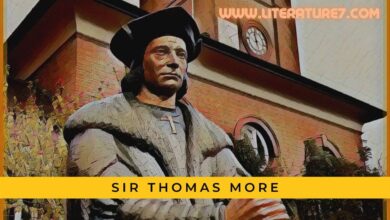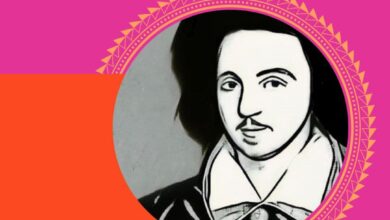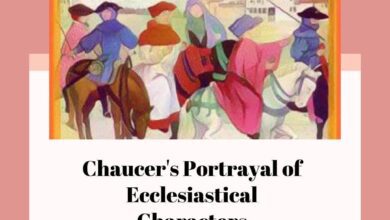Development of satire during the Elizabethan age

Satire was a popular genre during its time during the Elizabethan Age. Dramatists and poets were satirical and wrote satirical poems, like The Spenser’s Mother Hubbard’s Tale. There are many satirical poems. Slamming the jealousies, intrigues and false promises that prevail within the court circles of today.
The principal satirists of Elizabethan age are
- Thomas Wyatt
- Edmund Spenser
- Joseph Hall
- John Marston
- John Donne
- Ben Jonson
Thomas Wyatt
Wyatt is usually referred to as the creator of Sonnets in English, but Wyatt was also the initiator of satire in the original Chaucerian spirit. It is to the credit of Wyatt that following Chaucer; Wyatt became the first comedian who could relate to the real world. In the saga of classical satirists, Horace was his primary source of inspiration. Wyatt wrote three satires, each of them in the form of epistles. Two were directed at John Poyns and the third to Sir Francis Bryan, the subject of the three being the depravity of court life and the peace of retirement free of the clamour in the cities and scandals of the court.
Edmund Spenser
The satire of Spenser can be found throughout his poetry, like Shepheard’s Calendar Ruins of Times and Mother Hubbard’s Tale. The fable of “Fox and the Ape” that composes the entirety of the poem Mother Hubbard’s Tale is his bitterest political satire written in epic couplets. The powerful satire reaches four levels, where Spenser continuously attacks the social, clerical, and imperial societal norms.
Read more Contribution of university wits in english literature
Joseph Hall (1574-1656)
The assertion of Hall was false since satire was developed. Before he was Lodge, Donne and Marston, but they only published their work following Hall. The first three volumes of Virgidemiarum were published in 1597. They followed with the third and fourth in 1598. There is another way that Hall may be able to claim a higher status than other authors.
Hall might not be the first in terms of time or quantity; however, he is most prolific and has the most extensive scope and range. He wrote 34 satires while Wyatt had only written three, Lodge four, Donne five, and Spenser only three jokes. He was also the first person to start mimicking the classic models systematically in English. All of this elevates Joseph Hall to prominence as a comedian.
Hall was a skilled satirist, and his purpose of satirizing was correct and dispel evils that ran all over the world in his time. It contains Virgidemarium and six books; he decried the extravagant dress of his time and the sexiness of courtiers. He ridiculed the pretences of sonneteers and deplored the pomp and circumstance that Marlowe introduced in his drama. He was adamant about the absurdity of the clowns he had introduced in tragedies.
Read also William Blake songs of innocence and of experience analysis
He was brave enough to mock writers who were in the same position as him. He was a ferocious man with vehemence, passion and fire. He displayed rare proficiency in speech. His satires could be superficial and insincere; however, he brought to satire a repulsive force and a vicious tongue that John Marston used with still greater force.
John Marston (1575-1634)
Marston was more violent as Bishop Hall and surpassed him in declamatory fury and ferocity. The Metamorphosis Pygmalione’s Image and certain Satires and the Scourge of Vulainy, in 1598. He was among the most abusive, brutal, and vulgar Elizabethan satirists, both in subject matter and language. Marston permitted himself to be extremely rough, brutal rough, bitter and brash with the pretext of teaching morality. He tried to emulate the manner of Juvenal. He criticized lewd verses, but he became sexually explicit in Pygmalione. He was undoubtedly the most vulgar of Elizabethan comedians.
To quote Hugh Walker, “No one else pushed to such an extent the doctrine that the lines of the satire ought to jolt and bump along.” His topic is the hypocrisies of different classes of society that he was a part of at the time.
John Donne (1573-1631)
Donne, the poet of metaphysical thought, was also a comedian. He wrote five humorous works. He exposed the depravity of magistrates, courtiers and litigators. Donne was adamant in his words and was original in his theories. He embraced the Horatian method of anecdotal narration in satire; however, he did not care about versification. He writes in a relaxed, conversational, racy, and tense style throughout, and his verse is defiant of scansion, at the point that Ben Jonson was provoked into declaring that “For not keeping the accent, Donne deserved to be hanged.
See more realism in Robinson Crusoe
In the third of his satires, he condemns the ambiguity and lack of passion of the time in the realm of religion. The Reformation was a blow to ancient beliefs. No one was sure what religion was actually the one that was true, Roman Catholic with its extravagant forms of worship or Protestantism, either that was of that of the English branding or the continental brand that was more savage.
Ben Jonson (1572-1633)
Among the dramatists of the era, Ben Jonson was a great comic. He was the exemplar of satirical comedy. Through his satirical comedies, he ridiculed the flaws and flaws that characterized the society of his day and the most renowned literary figures of the time. With the film Every Man Out Of His Humour, the author clearly declared his purpose as a satirist.
Naked, as at their birth, and with a whip of steel.
Print wounding lashes in their iron ribs.
Ben Jonson’s goal was to expose his time’s flaws and flaws and bring about changes in the world by slapping the prevailing conditions. As a dramatic artist and scholar, Ben Jonson was qualified by what is often referred to as the satirist’s bias. Jonson’s satires were mature. Of someone who, like his father, Asper was awed by intellectual excellence and was aware of his ideal being shattered and denigrated in every aspect. Jonson did not consider as fools or knaves.
However, only a few people who had at least one snafu or error in their work attracted his attention or sparked his imagination. This is why there is a deficiency in Jonson’s comedy of pure humour and pure laughter and pure enjoyment.
The element of satire could easily be observed within Every Man in His Humour, Alchemist, Volpone and Every Man out of His Humour.
Main Features of Elizabethan Satire
After examining the satirical work of the renowned Elizabethan satirists, we can look at the main features of Elizabethan satire. The following are the principal characteristics that characterize Elizabethan satire:
A Literary Pose
A satirist could be a reformer or a person who has grievances. The Elizabethans weren’t either. They were too in love with their lives and satire it well. Elizabethan England did not leave anything to want, so the very basis on which satire was based was not what it should be. This is the reason for the fakeness and lack of authenticity of Elizabethan satire. It’s just form and not the fiery spirit that is required.
Imitative and Feeble
Elizabethan comedy is modelled after Horace as well as Juvenal. Elizabethan writers embraced the models, not attempting to adapt to modern methods. They did not draw directly from their own lives. Even a genius of originality similar to Donne is often imitated.
Rugged in Form and Harsh in Tone
Satiric poetry should be conversational, not as soft and smooth as the lyrics, but it should be something rough. There is a roughness of style in Elizabethan humour. It is apparent in Donne and Hall, and Marston, who is vulgar and indirect. It was partly derived from the belief that the ancients wanted the comedy to be written in slightly unpolished poetry and an imitation of Persius, the most obscure of the Latin poets.
No Skill in the Use of the Heroic Couplet
The couplet of the heroic did not reach the same perfection in design in the hands of the Elizabethans as it did in the Augustan time. The primary Elizabethan nation’s genius was poetic, not comical.
Wide Range of Satire
The scope and variety of satire were all-encompassing. Modern fashions, contemporary writers, women, court life, and authors satirized with passion and force. An example of the satirical character of Elizabethans can be seen below:
Are women saints ? No saints, nor yet no devils
Are women good? Not good, but needful evils





